
Thread:
After doing a year of required courses at Harvard, this semester I am taking a mix of courses that interest me most. In my readings, so many interesting ideas and stories come up that are relevant to @AamAadmiParty's politics in particular and Indian politics in general.
After doing a year of required courses at Harvard, this semester I am taking a mix of courses that interest me most. In my readings, so many interesting ideas and stories come up that are relevant to @AamAadmiParty's politics in particular and Indian politics in general.
I am going to use this thread to document some of that, so that AAP volunteers like myself (and others) can also benefit from it. Finding time to read when working on the ground is very hard. Hopefully, this thread can distill interesting ideas in consumable form!
Amartya Sen, in 'Development as Freedom' articulates which factors lead to "development", of which social opportunities is a big one. He notes how investment in health & edu in Japan led to fast growth. @ArvindKejriwal often quotes the Japan example to articulate the Delhi model. 


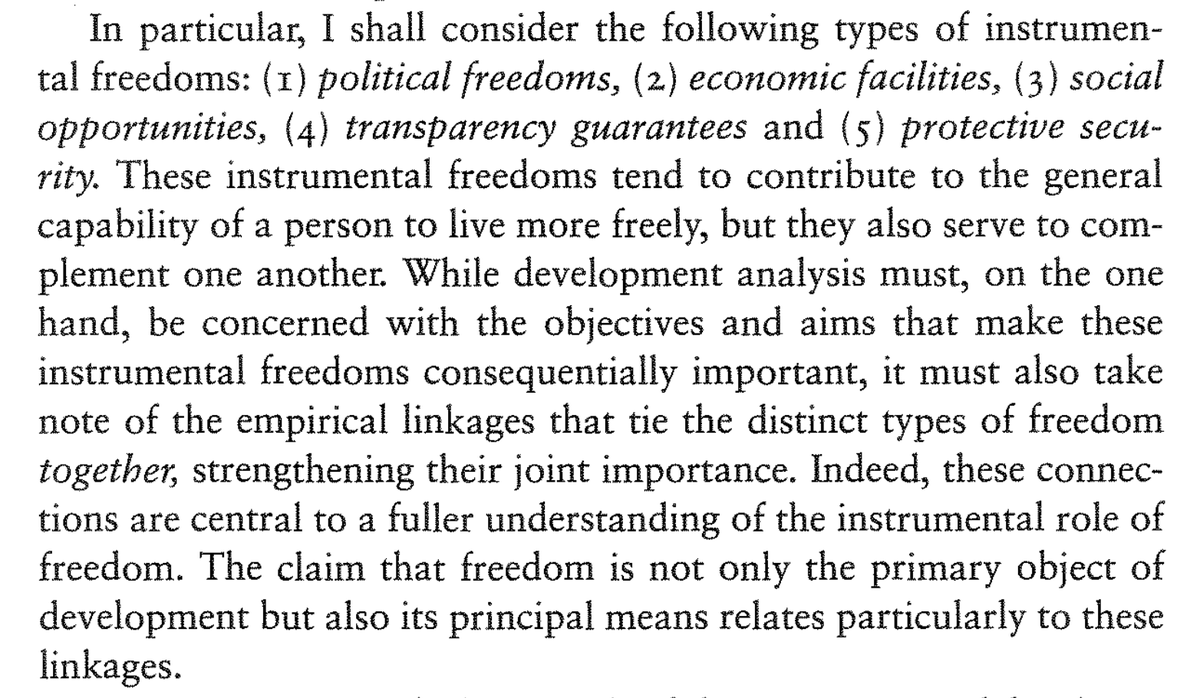
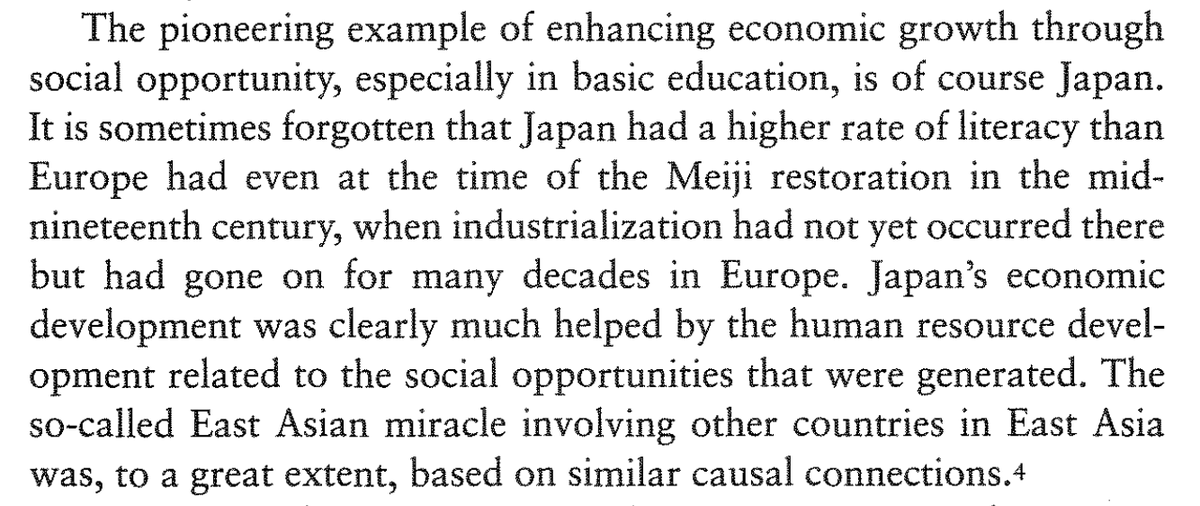
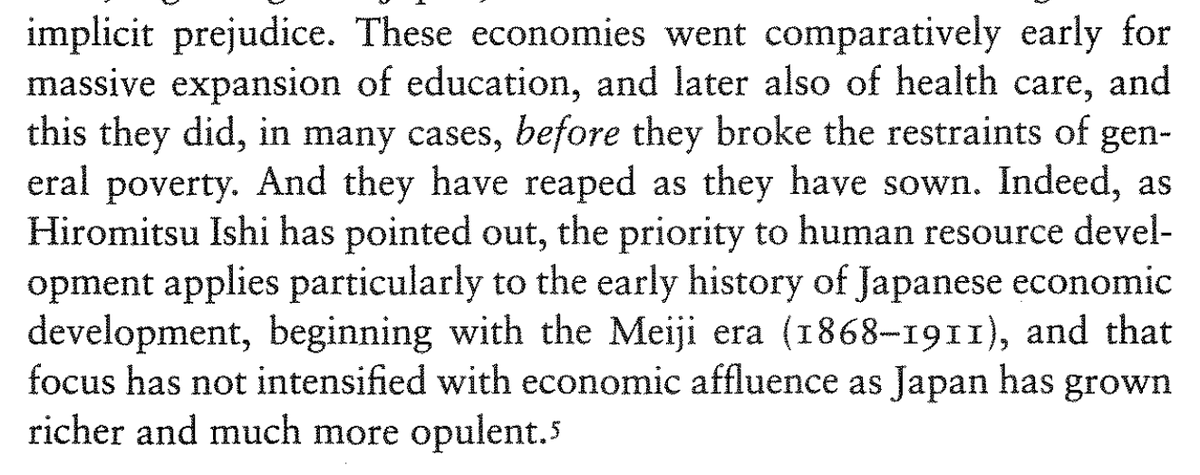
Found this accurate articulation of @AamAadmiParty's ideological commitment to education.
- Education is redistributive
- Education promotes meritocracy
- Best interest of elites (Cong-BJP) is to block education spending
From Ben Ansell's "From the Ballot to the Blackboard"
- Education is redistributive
- Education promotes meritocracy
- Best interest of elites (Cong-BJP) is to block education spending
From Ben Ansell's "From the Ballot to the Blackboard"

Fascinating paper on the role of democracy in Uganda's move to primary education in 1996.
Universal primary education became a reality in the country after it was promised in an election manifesto by a political leader, and after he won, he delivered on the promise 1/n
Universal primary education became a reality in the country after it was promised in an election manifesto by a political leader, and after he won, he delivered on the promise 1/n
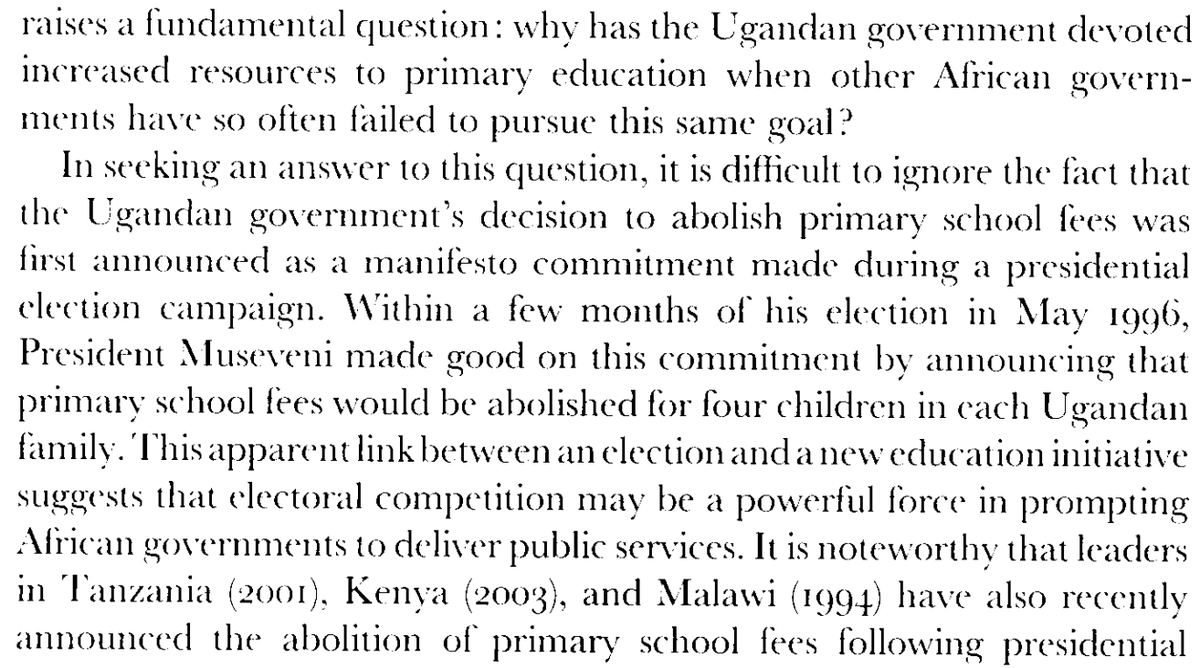
It continues: Mere existence of a democracy is not enough to increase spending on education. It must be a competitive democracy, where players face significant challenges to their power from Opposition groups. 2/n 
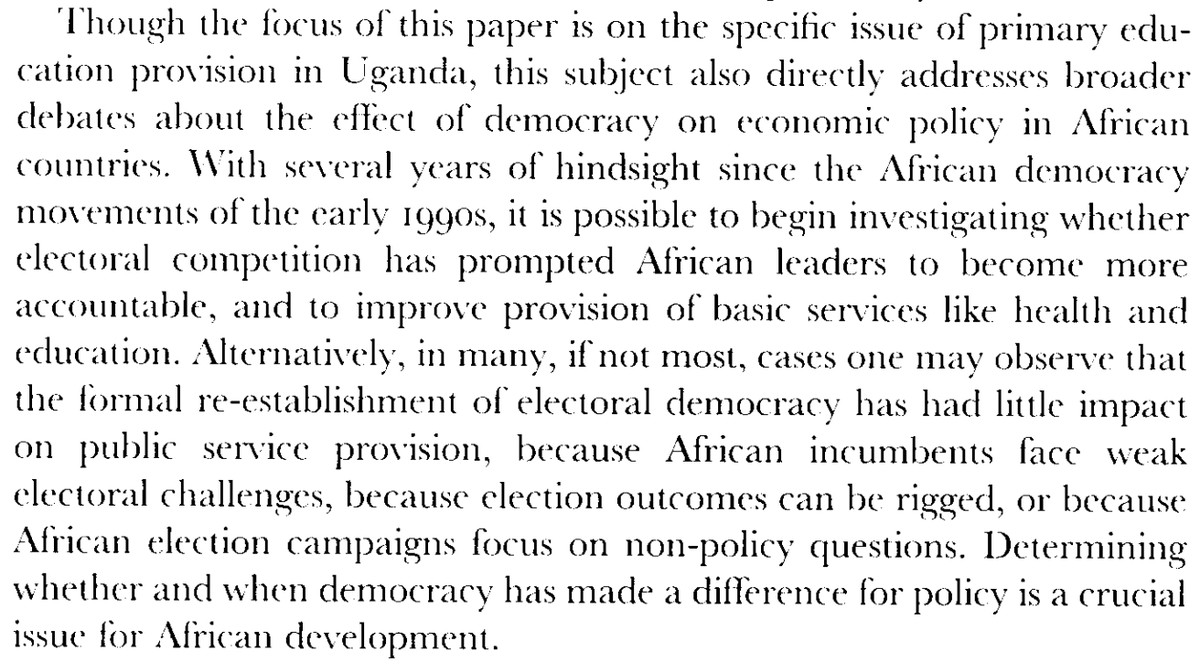
A big takeaway from this paper is:
If a party makes election an issue and becomes a competitive player in that election, no matter the outcome of the election, education spending is likely to go up. 3/n
Link to the paper: proquest.com/docview/196407…
If a party makes election an issue and becomes a competitive player in that election, no matter the outcome of the election, education spending is likely to go up. 3/n
Link to the paper: proquest.com/docview/196407…
Most importantly, it goes to AAP's potential role in improving spending on education across the country.
In the 2022 assembly election, the fact that AAP has made education a core electoral issue and has become a competitive force in most states is great news for education. 4/4
In the 2022 assembly election, the fact that AAP has made education a core electoral issue and has become a competitive force in most states is great news for education. 4/4
• • •
Missing some Tweet in this thread? You can try to
force a refresh



